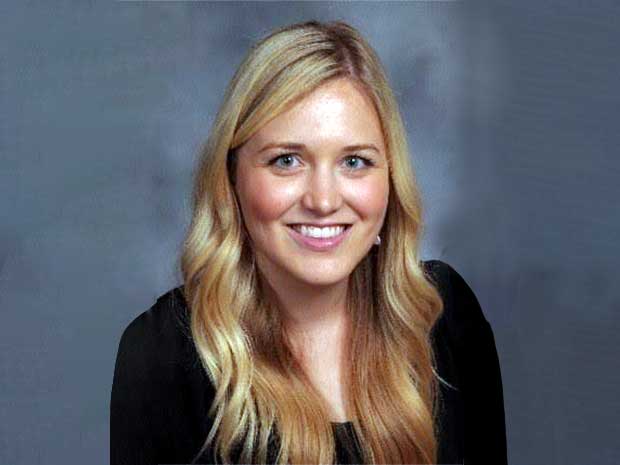This article, originally published May 13, has been updated several times, the latest to reflect that the full House of Representatives on May 22 passed the full taxation-and-spending bill.
Executive summary:
Exempt organizations would be directly affected by several tax provisions in the broad taxation-and-spending legislation that U.S. House of Representatives passed on May 22, 2025.
The bill, called the One Big Beautiful Bill Act, contains six provisions directly affecting exempt organizations and two provisions that would directly impact the charitable contribution deduction (including reinstating a partial nonitemizer charitable deduction and instituting a 1% floor for corporate charitable deductions). Unless otherwise noted, the provisions, if enacted, would take effect for tax years beginning after Dec. 31, 2025. The legislation, which contains numerous tax provisions that would affect individuals and businesses in various ways, is subject to change in the Senate as Republicans attempt to enact it by July Fourth.
Unrelated business income
The proposals include two changes to the determination of unrelated business income (UBI), including:
- Qualified parking expenses: The proposal would reintroduce section 512(a)(7), which includes as unrelated business income any expenses associated with qualified transportation fringe benefits. The 2017 tax law previously enacted a similar provision, which was retroactively repealed in early 2019. However, the 2025 provision specifically excludes churches and their affiliated organizations.
- Research in the public interest: The proposal would also modify the section 512(b)(9) research exclusion from unrelated business income to apply only to the extent income is derived from fundamental research that is made freely available to the general public.
Excess compensation excise tax (section 4960)
The proposal modifies the definition of a covered employee under section 4960 to include any current or former employee of an applicable tax exempt organization. This proposal would generally subject any compensation over $1 million to the section 4960 excise tax, beyond the organization’s cumulative list of Top 5 highest compensated employees. The proposal, however, does not include any changes to the exclusions for the provision of medical services.
Private foundations
The proposals also include provisions specific to private foundations:
- Net investment income tax: The section 4940 excise tax on a private foundation’s net investment income would increase for foundations with assets over $50 million from 1.39% up to 10% as follows:
Foundation asset size
Tax rate
≤ $50 million
1.39%
> $50 million and ≤ $250 million
2.78%
> $250 million and ≤ $5 billion
5.00%
> $5 billion
10.00%
For purposes of determining the foundation’s asset size and net investment income, assets and net investment income of organizations related to the private foundation will be treated as assets and net investment income of the private foundation. However, assets and net investment income that are not intended or available for the use or benefit of the private foundation will not be taken into account unless the private foundation controls the related organization.
As proposed, the increase in taxes would be effective for tax years beginning after the date of enactment.
- Excess business holdings: According to JCT’s explanation, voting stock repurchased by a business enterprise will not affect a private foundation’s excess business holdings under section 4943 if the voting stock (1) is not readily tradable on an established securities market; (2) is purchased by the business enterprise on or after Jan. 1, 2020, from an employee stock ownership plan (ESOP); and (3) is held by the business enterprise as treasury stock, cancelled, or retired.
College and university endowment excise tax (section 4968)
The proposal would increase the college and university endowment excise tax for private colleges and universities that have non-charitable use assets that are over $750,000 per student from 1.4% up to 21% as follows:
Per student endowment size |
Tax rate |
> $500,000 and ≤ $750,000 |
1.4% |
> $750,000 and ≤ $1.25 million |
7.0% |
> $1.25 million and ≤ $2 million |
14.0% |
> $2 million |
21.0% |
In computing the endowment size, only students that meet the eligibility requirements under section 484(a)(5) of the Higher Education Act of 1965 would count. According to JCT’s explanation, that section requires the student “be a citizen or national of the United States, a permanent resident of the United States, or able to provide evidence from the Immigration and Naturalization Service that he or she is in the United States for other than a temporary purpose with the intention of becoming a citizen or permanent resident.” The proposal would also require additional Form 990 reporting regarding the number of students.
However, the proposal would exclude “qualified religious institutions” from the excise tax. Such institution must have been established after July 4, 1776; been established by, or in association with, and continuously maintained an affiliation with a church (as described in section 170(b)(1)(A)(i)); and maintain a published institutional mission that is predicated upon religious tents, beliefs, or teachings.
Initial proposals not moving forward
The following proposals, introduced on May 12, were removed from the House Rules Committee’s proposals on May 18:
- Add new sections 513(k) and 512(b)(20), which would have required income derived from the sale or licensing of an exempt organization’s name or logo be included in unrelated business income.
- Extend section 501(p) to organizations that support terrorism by providing the Secretary of the Treasury with authority to suspend the organization’s exempt status. This provision echoed Section 4 of the Stop Terror-Financing and Tax Penalties on American Hostages Act (H.R. 9495) that passed the House of Representatives on Nov. 21, 2024.
RSM US takeaways
These proposals remain subject to change as the budget reconciliation process unfolds in the Senate. RSM will continue to monitor developments and provide the sector with relevant and timely updates.
RSM contributors
-

-
 Lauren NowakowskiSenior Manager
Lauren NowakowskiSenior Manager -
 Michelle McCarthySenior Manager
Michelle McCarthySenior Manager
Related insights
Tax resources
Timely updates and analysis of changing federal, state and international tax policy and regulation.
Subscribe now
Stay updated on tax planning and regulatory topics that affect you and your business.
Washington National Tax
Experienced tax professionals track regulations, policies and legislation to help translate changes.

